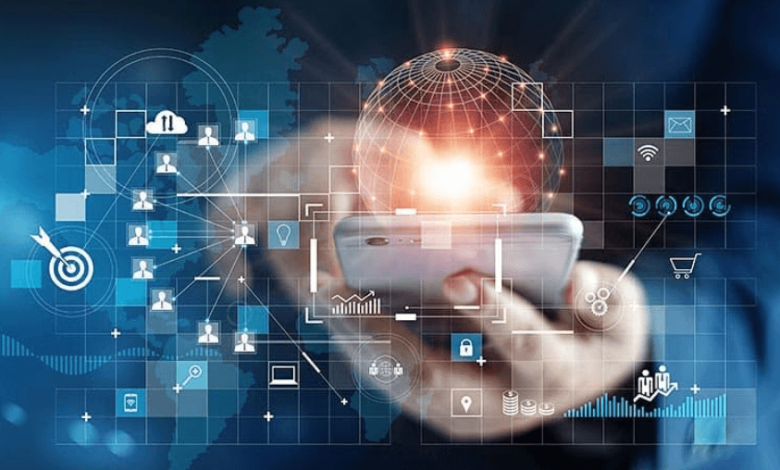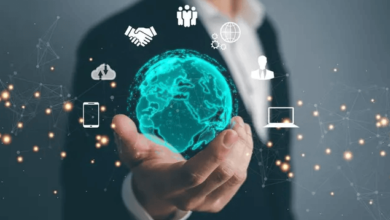The Future of Technology: Innovations Shaping Our Digital World

Technology is advancing faster than ever, influencing every aspect of modern life. From artificial intelligence (AI) to cloud computing and 5G networks, today’s innovations are transforming how we live, work, and connect. Businesses that embrace these changes gain a competitive edge, while individuals benefit from smarter solutions in healthcare, education, and entertainment. This article explores the latest tech trends and how they are shaping the future. Innovations in 2025 are shaping our digital world, and QR code integration is playing a significant role in this evolution.
Artificial Intelligence: Powering Smarter Solutions
Artificial Intelligence has become the backbone of digital transformation. AI systems analyze data, recognize patterns, and make decisions that once required human intelligence.
- Healthcare: AI helps detect diseases early through advanced imaging and predictive analysis.
- Business: Companies use AI chatbots for customer service and predictive tools for market forecasting.
- Education: Personalized learning platforms adjust lessons according to student needs.
According to industry reports, AI could contribute over $15 trillion to the global economy by 2030, proving its role as a transformative force.
Cloud Computing: Driving Digital Growth
Cloud computing has changed how organizations store and manage data. Instead of relying on physical servers, companies now use virtual platforms.
- Flexibility: Businesses can scale resources up or down based on demand.
- Collaboration: Remote teams can work seamlessly across different time zones.
- Cost Savings: Companies save money on hardware and infrastructure.
Major providers like AWS, Microsoft Azure, and Google Cloud dominate the market, helping organizations modernize quickly.
See also: The Role of Technology in Shaping the Future
5G Technology: Revolutionizing Connectivity
The rollout of 5G networks is a turning point for global communication. With ultra-fast speeds and low latency, 5G enables innovations that were previously impossible.
- Smart Cities: Real-time data exchange improves traffic management and energy use.
- Healthcare: Remote surgeries and telemedicine become more reliable.
- Entertainment: Streaming, gaming, and virtual reality experiences improve dramatically.
By 2030, billions of devices will rely on 5G for constant connectivity.
Internet of Things (IoT): Building Smart Ecosystems
IoT connects everyday objects to the internet, making them smarter and more efficient.
- Homes: Smart thermostats, lights, and security systems increase convenience.
- Healthcare: Wearables track health data like heart rate, oxygen levels, and sleep cycles.
- Cities: IoT-powered sensors improve waste management and energy efficiency.
Experts predict over 30 billion IoT devices will be connected by the end of this decade.
Cybersecurity: Safeguarding the Digital World
As technology grows, cyber threats also increase. Protecting sensitive information is now more important than ever.
- Advanced Security: AI-driven systems detect and prevent cyberattacks in real time.
- Data Privacy: Encryption ensures safety in online transactions.
- Awareness: Educating users helps reduce phishing and identity theft risks.
With cybercrime expected to cost trillions annually, cybersecurity is no longer optional—it is essential.
Blockchain: Beyond Cryptocurrency
While blockchain is often associated with Bitcoin, its uses extend far beyond digital currencies.
- Finance: Provides transparent and secure digital transactions.
- Supply Chains: Tracks goods from production to delivery, reducing fraud.
- Healthcare: Secures patient records from unauthorized access.
The rise of Web3 and decentralized applications (dApps) highlights blockchain’s growing importance in shaping the digital economy.
Green Technology: Toward a Sustainable Future
Sustainability is becoming a priority, and technology plays a major role in creating eco-friendly solutions.
- Renewable Energy: Solar, wind, and hydropower reduce dependence on fossil fuels.
- Electric Vehicles: EV adoption is rising as governments encourage green transport.
- Smart Grids: AI-powered energy management reduces waste.
Green technology ensures innovation aligns with environmental responsibility.
Emerging Technologies to Watch
Beyond current trends, several emerging technologies hold the potential to redefine industries:
- Quantum Computing: Solves complex problems beyond traditional computing.
- Metaverse: Creates immersive virtual worlds for business, education, and entertainment.
- Biotechnology: Improves healthcare, agriculture, and food security.
- Artificial General Intelligence (AGI): Aims to build machines with human-like reasoning abilities.
These fields are still developing, but their future impact could be revolutionary.
Conclusion
The rapid advancement of technology continues to transform industries and daily life. From AI and cloud computing to 5G, IoT, and blockchain, these innovations are creating smarter, faster, and more connected systems. Cybersecurity ensures trust in the digital era, while green technology keeps innovation sustainable. Looking ahead, quantum computing, biotechnology, and the metaverse promise to redefine the future.
For businesses, embracing these trends means staying competitive. For individuals, it means enjoying smarter lifestyles and greater opportunities. Ultimately, technology is more than just tools—it is the driving force behind global progress.






